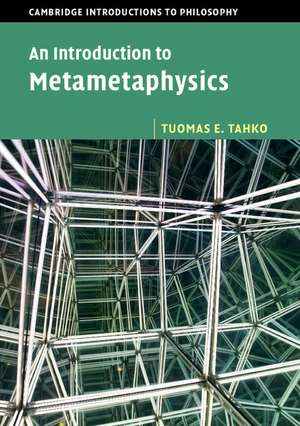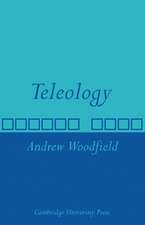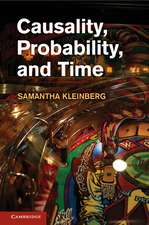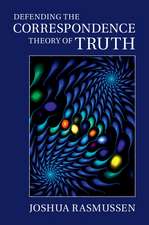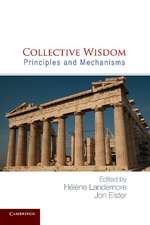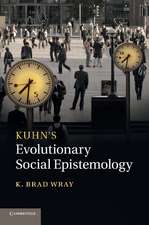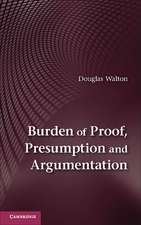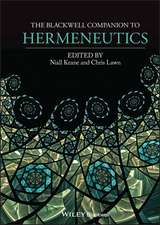An Introduction to Metametaphysics: Cambridge Introductions to Philosophy
Autor Tuomas E. Tahkoen Limba Engleză Paperback – 11 noi 2015
| Toate formatele și edițiile | Preț | Express |
|---|---|---|
| Paperback (1) | 192.86 lei 22-36 zile | |
| Cambridge University Press – 11 noi 2015 | 192.86 lei 22-36 zile | |
| Hardback (1) | 644.23 lei 43-57 zile | |
| Cambridge University Press – 11 noi 2015 | 644.23 lei 43-57 zile |
Din seria Cambridge Introductions to Philosophy
-
 Preț: 217.89 lei
Preț: 217.89 lei -
 Preț: 259.62 lei
Preț: 259.62 lei -
 Preț: 194.81 lei
Preț: 194.81 lei -
 Preț: 234.36 lei
Preț: 234.36 lei -
 Preț: 155.13 lei
Preț: 155.13 lei -
 Preț: 285.93 lei
Preț: 285.93 lei -
 Preț: 199.01 lei
Preț: 199.01 lei -
 Preț: 216.84 lei
Preț: 216.84 lei -
 Preț: 193.16 lei
Preț: 193.16 lei -
 Preț: 288.08 lei
Preț: 288.08 lei -
 Preț: 265.70 lei
Preț: 265.70 lei -
 Preț: 283.03 lei
Preț: 283.03 lei -
 Preț: 301.35 lei
Preț: 301.35 lei -
 Preț: 351.53 lei
Preț: 351.53 lei -
 Preț: 290.76 lei
Preț: 290.76 lei -
 Preț: 278.72 lei
Preț: 278.72 lei -
 Preț: 240.63 lei
Preț: 240.63 lei -
 Preț: 196.22 lei
Preț: 196.22 lei -
 Preț: 339.96 lei
Preț: 339.96 lei -
 Preț: 301.86 lei
Preț: 301.86 lei -
 Preț: 327.41 lei
Preț: 327.41 lei -
 Preț: 254.59 lei
Preț: 254.59 lei -
 Preț: 263.30 lei
Preț: 263.30 lei -
 Preț: 318.06 lei
Preț: 318.06 lei - 11%
 Preț: 622.06 lei
Preț: 622.06 lei -
 Preț: 304.74 lei
Preț: 304.74 lei
Preț: 192.86 lei
Nou
Puncte Express: 289
Preț estimativ în valută:
36.92€ • 40.11$ • 31.03£
36.92€ • 40.11$ • 31.03£
Carte disponibilă
Livrare economică 31 martie-14 aprilie
Preluare comenzi: 021 569.72.76
Specificații
ISBN-13: 9781107434295
ISBN-10: 1107434297
Pagini: 266
Ilustrații: 2 b/w illus.
Dimensiuni: 173 x 247 x 13 mm
Greutate: 0.54 kg
Editura: Cambridge University Press
Colecția Cambridge University Press
Seria Cambridge Introductions to Philosophy
Locul publicării:New York, United States
ISBN-10: 1107434297
Pagini: 266
Ilustrații: 2 b/w illus.
Dimensiuni: 173 x 247 x 13 mm
Greutate: 0.54 kg
Editura: Cambridge University Press
Colecția Cambridge University Press
Seria Cambridge Introductions to Philosophy
Locul publicării:New York, United States
Cuprins
1. Why should you care about metametaphysics?; 1.1. Metametaphysics or metaontology?; 1.2. How to read this book; 1.3. Chapter outlines; 1.4. Further reading; 2. Quine vs Carnap: on what there is and what there isn't; 2.1. On what there is; 2.2. Plato's beard; 2.3. Enter Meinong; 2.4. External and internal questions; 2.5. Language pluralism; 3. Quantification and ontological commitment; 3.1. The meaning of the existential quantifier; 3.2. The existential quantifier and ontological commitment; 3.3. Quantifier variance and verbal debates; 3.4. Beyond existence questions; 4. Identifying the alternatives: ontological realism, deflationism, and conventionalism; 4.1. Ontological realism and anti-realism; 4.2. Ontological deflationism; 4.3. Towards extreme conventionalism; 4.4. A case study: Sider's ontological realism; 4.5. Taking stock; 5. Grounding and ontological dependence; 5.1. Ontological dependence: a fine-grained notion; 5.2. Identity-dependence and essential dependence; 5.3. Is grounding ontological dependence?; 5.4. Formal features of ground; 5.5. Grounding, causation, reduction, and modality; 5.6. Grounding and truthmaking; 6. Fundamentality and levels of reality; 6.1. The 'levels' metaphor; 6.2. Mereological fundamentality; 6.3. Further specifications: well-foundedness and dependence; 6.4. Generic ontological fundamentality; 6.5. Fundamentality and physics; 7. The epistemology of metaphysics: a priori or a posteriori?; 7.1. A priori vs a posteriori; 7.2. Modal rationalism and a priori methods; 7.3. The epistemology of essence; 7.4. Modal empiricism and the status of armchair methods; 7.5. Combining a priori and a posteriori methods; 8. Intuitions and thought experiments in metaphysics; 8.1. Specifying 'intuition'; 8.2. Intuitions and experimental philosophy; 8.3. Experience-based intuitions; 8.4. Rational intuition; 8.5. Scientific thought experiments; 8.6. Philosophical thought experiments; 9. Demarcating metaphysics and science: can metaphysics be naturalized?; 9.1. Autonomous metaphysics; 9.2. Fully naturalistic metaphysics; 9.3. The Principle of Naturalistic Closure and the Primacy of Physics; 9.4. Methodological similarities; 9.5. Moderately naturalistic metaphysics; Glossary; Bibliography; Index.
Recenzii
'Tahko strikes exactly the right balance between introducing substantive metaphysical topics and exploring various metametaphysical considerations of those topics. An Introduction to Metametaphysics would make a splendid textbook for anyone offering an upper level course in metaphysics.' John Heil, Washington University, St Louis
'This is a top-notch study of the metaphysical and epistemic foundations of metaphysics. Anyone interested in contemporary metaphysics and its methodology should read this book.' L. A. Paul, University of North Carolina, Chapel Hill
'Metametaphysics is a hot and important topic. Tahko's book gives us not only an engaging introduction to the subject, but also an overview that will stimulate and reward the attention of all metaphysicians.' Alexander Bird, University of Bristol
'The book has many virtues: it engages with both contemporary philosophers and topics and their recent predecessors, and gives accurate and succinct descriptions of most of the views under discussion.' Michaela Markham McSweeney, Australasian Journal of Philosophy
'This is a top-notch study of the metaphysical and epistemic foundations of metaphysics. Anyone interested in contemporary metaphysics and its methodology should read this book.' L. A. Paul, University of North Carolina, Chapel Hill
'Metametaphysics is a hot and important topic. Tahko's book gives us not only an engaging introduction to the subject, but also an overview that will stimulate and reward the attention of all metaphysicians.' Alexander Bird, University of Bristol
'The book has many virtues: it engages with both contemporary philosophers and topics and their recent predecessors, and gives accurate and succinct descriptions of most of the views under discussion.' Michaela Markham McSweeney, Australasian Journal of Philosophy
Notă biografică
Descriere
This is the first systematic student introduction to metametaphysics, examining the nature, foundations and methodology of metaphysical inquiry.
